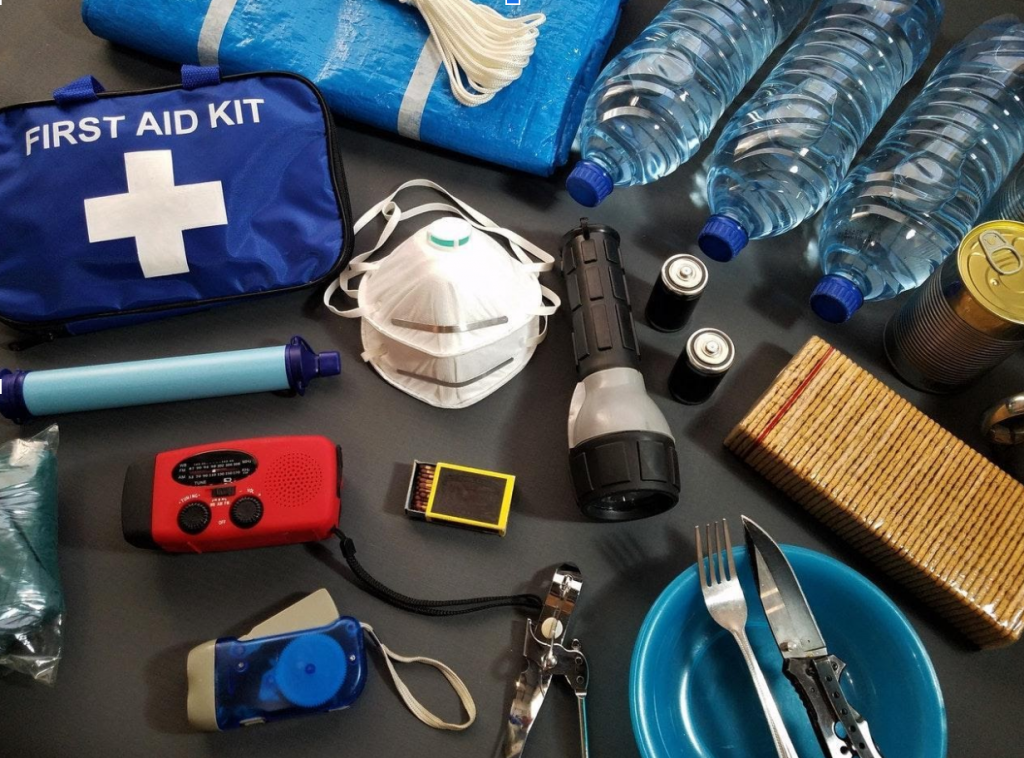Latest News
Tips for Any Natural Disaster
by DC Gabe Balsamo in General, Safety Tips

Image via Pexels
Tips for Any Natural Disaster
A natural disaster is the last thing any of us expect, but at some point in our lives, all of us will have to deal with one. By preparing for emergencies, you can rest easier knowing that you and your family have a plan and the supplies you need to survive the effects of something like wildfires, storms or flooding. Although every region has its own natural disaster hazards, the following tips from the North Madison Volunteer Fire Company can help you prepare for a number of different scenarios.
Research your area
The first step to being well-prepared is to learn more about the hazards in your area, so that you can tailor your plan and supplies to a specific type of natural disaster. For example, if your home is near a heavily forested area, keep wildfires in mind as a potential risk and plan accordingly. Those who live in the Eastern U.S. and Gulf Coast may want to prepare for the possibility of hurricanes or flooding, while Midwestern residents would be more concerned with the threat of tornadoes. Consider using a disaster app and signing up for emergency alerts. Once you know more about potential hazards in your area, talk to your insurance company to gain a clear picture of what type of coverage is available to you.
Pack an emergency kit
While your disaster “go bag” will be tailored to the risks in your specific area, there are several items that are important to pack for any natural disaster. Start with the essentials – such as three days’ worth of (nonperishable) food and water, a water filter, a flashlight, a two-way radio, extra batteries, a first aid kit, and multipurpose tools.
If you’re a senior taking medication or have a chronic illness, you will have a few additional considerations in packing your emergency kit. Include any prescription medications that you are taking, your list of emergency contacts, copies of your medicare or medicaid insurance information, as well as written information about your health issues and treatment. Consider storing these important documents in a fire-resistant folder or safe. If you live in a tornado-prone area, be sure that this safe and your supply kit is stored in the lower level or basement of your home.
Make a plan
Having a well-packed emergency kit isn’t enough on its own. You’ll need to know what to do to protect your family if disaster strikes. Start by learning the evacuation zones for natural disasters that are specific to your area and then create an evacuation plan. Pick two meeting spots – one near your home and one outside your neighborhood. Once you’ve done this, map out an evacuation route, as well as an alternative route. Share this plan with your immediate family and relatives.
It can also help to make a communication plan, which you would use in the event that any family members are separated. Consider choosing an additional trusted person outside the potentially affected area who can act as a point of contact in case you lose communication with a family member. Memorize the phone number and address of your contact person, so that you can still reach them if you don’t have access to your cell phone.
Last but not least, make a plan to repair any issues that are affecting your house or property. For example, if you have a dying tree in your yard, hire professionals to remove it, thus preventing any potential damage to your home during a storm. It’s also a good idea to keep your gutters in good repair. Search for “gutter cleaners near me” online or ask a friend!
While the threat of a natural disaster is probably the last thing that you want to think about, preparation is your best defense. A bit of planning ahead can go a long way to ensure the safety of you and your family. By learning more about your region’s natural disaster risks, packing a kit of essentials, and formulating a plan, you can rest easy knowing that you’re ready for anything.
In collaboration with Thomas Walker
